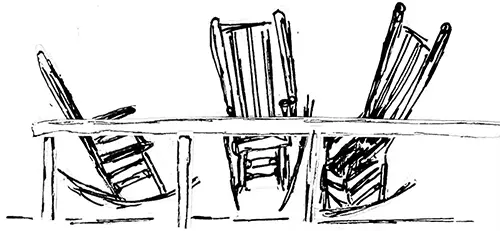technology 146
From Technological Nostalgia to Technological Faithfulness
I bought myself an iPad in August 2016, and to say that it changed my life would be only a slight overstatement. For several years I had been experiencing increasingly…
The Tyranny of Big Tech Demonstrates the Tyranny of Faulty Ideas on the Right
Hawley’s book goes some way towards providing a framework for using the threat of a legislative boot to stomp Big Tech back down to size. Whether the Right will listen…
A Frenchman Discovers Silicon Valley Post-Animal Agriculture
In the book Steak Barbare, Gilles Luneau unravels the industry that depends on promoting a vegan diet and post-animal agriculture. His book sheds light not only on how labs grow…
Watching Movies and Wondering about Metaphysics in an Anxious Age
Casey Spinks muses on zombie shows, Pixar movies, Scorsese films, metaphysical realism, and the philosophical fate of modern culture in his review of Age of Anxiety: Meaning, Identity, and Politics…
When Innovation Runs Out: The Vindication of Maintenance
The Innovation Delusion goes a long way toward demystifying and destigmatizing the ordinary yet essential work of maintenance.
Education and Democracy in Disembodied Times: Emerson and Dewey on Humane Technology
In an age of knee-jerk innovation, the warnings articulated by Emerson and Dewey are more needed than ever. They advocated for applied knowledge, but they also insisted such technology must…
Bees’ Wings & Zerks
Supportive efforts can steer this ingenious workforce toward better stewardship and environmental integrity by reclaiming that awe that life on the land should inspire.
Mr. Munson’s Mustang: A Fable
"In order to implement vital system updates, you must install the Trans-Mog-Z Facilitator, available at any Big Horizon Automotive Intervention Center. This has been your first notice.”
Cultivating the Skills that Freedom Requires in Matthew Crawford’s Why We Drive: Toward a Philosophy of the Open Road
Human driving requires unending mutual predictions and constant accommodations for each other. It is in such experiences that we end up with something meaningful for life in the physical world…
Wendell Berry and Zoom
While the futurists and transhumanists and purveyors of educational technologies would have us voluntarily cut off our arms so we can enjoy their fancy new prostheses, our priority should be…
Call Me Lucifer
Alexa is no doubt low-hanging fruit for the readers of Front Porch Republic. It is a place-contaminating, unlimited tyrant. If you've purchased one, watch out. When the lights start pulsing…
Noticing Birds
We don’t have to escape to a new and better location with more perfect neighbors. We need to lovingly attend to the ones we have.
Recapturing the Real: Physicality, Imitation, and Tradition in a Digital World
Our educational approach should include the validation of physicality, the imitation of the master, and the celebration of tradition.
I Am Not a Luddite
In my efforts to point people to various methodologies of eco-agriculture I often encounter those who dispute these approaches. One of the frequent refrains I hear is, “We can’t go…
What Are People For? Control or Love?
The arguments that Deneen and Shatzer advance are really two sides of the same coin; as one interpreter of Marshall McLuhan put it, “We make our tools, and then our…
Robo-umps and Us
As is so often the case when new technology promises to correct the errors of human fallibility, robo-umps could be bad for everyone involved.
A Primer on Digital Thinking Part 2: Eliminating the Human Element
In Part 1, I outlined the basic difference between counting and measuring and gave some examples of how data is not always objectively derived. Now I want to move the…
Learning to Distinguish between Demonic and Redemptive Technologies
In a recent essay for Christianity Today, “Do All Plants Go to Heaven?,” Abigail Murrish speculates that GMOs might be present in the New Jerusalem. It’s certainly an interesting question.…
Stop Talking about Wendell Berry on Twitter
Editor's Note: Matt's piece kicks off a mini-symposium on the question of whether localists should use social media, and if so, how. As a Twitter user myself, albeit a somewhat…
Learning How to Think with Alan Jacobs
Last fall Alan Jacobs published a slim book with a bold title: How to Think: A Survival Guide for a World at Odds. Jacobs is a professor of English literature,…
Convenience, Digitized Childhood, Hunters, and more
“Make Communities Great Again.” James Bruce argues the federal government should adopt policies that would strengthen local communities. “The Tyranny of Convenience.” Tim Wu writes about how our quest for…
Technology and the Virtues: Scale Matters
When an autonomous Uber vehicle struck and killed a pedestrian in Arizona, Uber suspended its fleet of self-driving cars and assured everyone that it was “cooperating with authorities.” Such “cooperation”…
Technological Failures, New Localism, and More
Each week, I’ll try to post links to recent essays and stories that might interest Porchers. If you have additional essays to recommend, please link to them in the comments.…
Nonsense on Stilts? Dandyism? Okay.
If I were God, I’d keep other company.











